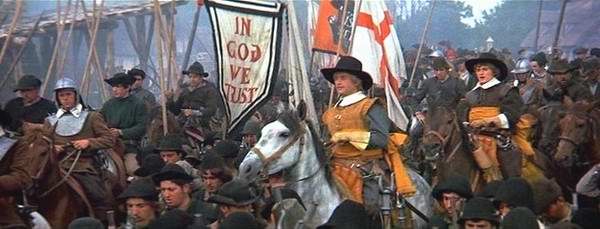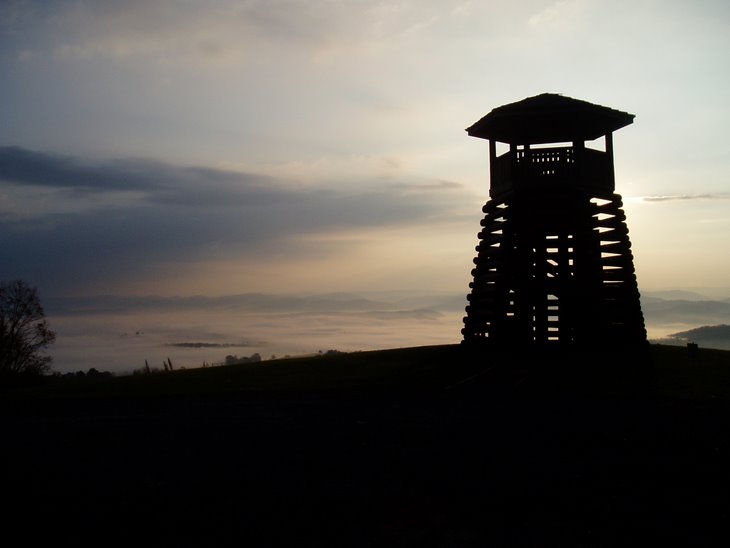Could Instruments Be Idols?
The only vaguely Reformed defense of instruments and uninspired songs is that they are only circumstances and not elements. The latter are essential to worship. They are usually said to include Word, sacrament, and prayer. Historically we’ve defined circumstances to refer to things truly indifferent such as time, place, and posture. A circumstance is supposed to be something that is genuinely indifferent, i.e. something that neither adds to worship nor, if omitted, takes away from worship.
When I say, “If they’re only circumstances, let’s get rid of them” I get a reaction that suggests that they aren’t really adiaphora (indifferent) or circumstances at all. “You can’t smash that organ. Why Mr So and So donated money for that organ back in 1870.” Or “We can’t stop singing that hymn, after all, that’s my favorite hymn.” Or even more to the point, as one student said years ago, “When I hear the organ, I feel the presence of God.”
When we hear objections like these we can see that it’s quite unclear whether musical instruments function as mere circumstances. When I propose to change the time of worship no one says, “But 11AM means so much to me.” When I say, “Let us stand,” no one says, “But when I sit, I feel God’s presence.” If folk do become so attached to a time or a posture or a place, well, then it’s probably time for a change. Worship isn’t about time, place, or posture, it’s about being met by the living God.
People react to the mere suggestion of the removal of instruments as they do because instruments and music are affective. Worship has become so identified with the affect produced by the instruments (or our favorite scripture song) that to take them away seems almost blasphemous. We love our instruments in a way we don’t love posture, place, or time. There is a categorical difference between instruments and P, P and T. If we can’t change them or if they have become sacred, well, maybe they have become idols?
There’s a second problem with instruments that is even more fundamental than our experience and that is those instruments that folk love so much come with some pretty heavy baggage. The only biblical ground for instruments also entails the sacrifice of animals. In other words, how are we going to use Moses’ or David’s instruments without killing Aaron’s lambs or engaging in holy war? The same instruments we want to borrow from Moses come covered with the blood of bulls and goats and resonating with the sounds of holy war against your local canaanite city. The old Reformed churches understood that the Mosaic covenant was totalitarian. It’s pretty hard to borrow just a little bit of Moses. Just ask the medieval church. How are we going to do what the medieval church did, borrow Mosaic elements (and for the same reasons) without gradually reproducing the Mosaic worship system just as the medieval church did?
Maybe the Reformed in the 16th and 17th centuries knew what they were doing when they rid our worship of instruments and of uninspired songs?












10 comments:
"Maybe the Reformed in the 16th and 17th centuries knew what they were doing when they rid our worship of instruments and of uninspired songs?" and maybe the need to be a pure Reformed could also be an idol unto yourself.
I'm not sure I buy the distinction here - in the sense that I have found place to be every bit as important to most people.
(I mean setting - the buildings, accouterments, etc. - try changing these in many congregations and you will encounter severe opposition along much the same lines.)
The same is true with styles of preaching, the way communion is celebrated, etc. (I mean in the, to my mind, minor details.)
Yes, all of these can be idols - people place far too much importance on the adiaphora, IMO.
Dad,
We heard a Sermon yesterday at the RP church we go to for Sunday night service and that was the gist of the message. (cf. 1 Cor 3). I agree we can make the words of the Puritans and the Reformers into near inspired works. However we cannot be so arrogant (as our age seems to be with anything that has come before) as to dismiss the stuff we disagree with as just "out-of-fashion". Our final authority must always be Scripture and Scripture Alone. So the real need for us to look and see what Scripture says always in every matter.
Will,
I agree, the adiophora in most churches takes much more precedence over the actual Worship of God.
Benjamin, thanks for posting this.
I'm not sure I agree with all of the distinctions mentioned, though. There is certainly a way in which music can be a "circumstance" (even though, admittedly, Clark is right in that this is not the way in which instruments are normally used in worship in today's churches): I attended an RP men's retreat few weeks ago, in which the psalms were sung. The song leader frequently played notes on a piano so that he could find the proper pitch with his voice and lead us (of course, this wasn't an organized worship service). If instruments are used so that everyone can sing together and on key, then they can be a circumstance.
Of course, Clark is absolutely correct in saying that instruments can very easily become idols. This was the way the Puritans viewed the organ in Anglican churches (according Davies' The Worship of the English Puritans). Organs then, electric guitars today, I suppose.
I did not get what he meant by this statement:
There is a categorical difference between instruments and P, P and T.
Another very good article that in many ways, I agree.
Now, the temptation is to try and thrust this information onto a congregation that is hardly prepared or mature enough to handle it. I feel like a lot of times we, as pastors, have to defer on things like this out of interest for our congregation. In other words, they cannot handle this level of the truth. The idea is to move them as far along as possible, without losing any of the flock in the process. To get to the point of removing our lone instrument, the piano, would take years.
The point that I'm trying to make is that while this position may be perfectly clear to many in the Reformed circles, it is almost impossible to bring a congregation to this level without a split. Given that the piano is incidental, is it worth it?
I don't think so. We have to pick our battles and this one is not one I'm willing to fight.
However, I am willing to fight the battle for all the true elements, especially communion, and weekly observance of it. To me, that is far more important than removing our quietly played piano.
Just some thoughts,
Blessings
I'm not as well informed on the topic as some of you. Could someone fill me in as to why it is that Luther (who was very happy to compose music with instruments and "uninspired" words for worship) is all but ignored in this consideration? It seems as if the notion of "Reformed" would need to include Martin Luther, and Martin Luther disagreed with John Calvin on the use of instruments in worship. Instead of simply choosing sides, has anyone sought to correlate the two views or at least see which made the most sense?
Tim,
You are welcome. The many aspects of worship is definitely my "niche" in theological study and so I like to pass on things I find interesting.
Timothy,
I agree wholeheartedly with everything you say. In a perfect world I have come to believe would not include musical instruments in Worship. However this is an issue which will cost many congregants to leave (part of the reason the RPCNA only has 8,000 members and partly why ARP and PCUS churches got organs as soon as Dabney and Girardeau were in the ground).
Stan,
The reason is Martin Luther held to the Normative Principle of Worship and Calvin to the Regulative Principle of Worship.
Simply put
NPW = All things are lawful to do in Worship that God does not expressly forbid.
RPW = Things done in Worship must have Divine command.
Ben, I do understand the concept of the RPW, but since the Bible (and Calvin himself) agrees that musical instruments are used in worship ... doesn't that qualify as being done by divine command? I understand (and appreciate) the idea that we shouldn't be doing things in worship that God did not command, but it appears that Calvin (and you) would have us delete the Old Testament instruments and I don't understand why. (And from what I've read of Luther's view, he allowed instruments and wrote songs about the content of Scripture rather than purely the words of Scripture. That hardly seems like a "normative principle".)
Why aren't we using the whole counsel of God ie the whole Bible to understand Scripture?
What do you mean Joani?
Post a Comment